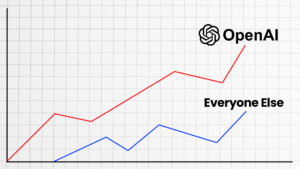DevOps is a software development strategy and culture that enables automation of infrastructure, aims to improve communication and collaboration between software developers, who build products and services; IT teams who manage those products and services; and business leaders who make product decisions. Agile software development strategies are used to develop the functionality of a product or service in small increments rather than all at once, allowing the product to be tested as it’s created. Agile software development strategies tend to overlap in many ways as they both focus on constantly iterating towards a finished product. However, there are times when one strategy will be more appropriate than another for meeting specific business needs.
What is DevOps?
DevOps has been in the industry for quite some time, but it’s a relatively new concept to many companies. It integrates agile concepts including as automation and team collaboration that allow teams to develop and deliver products swiftly. This is because DevOps combines the benefits of traditional Agile and DevOps methods. Traditional agile requires little operation, which is critical to success. Learn how it might benefit your business when you understand how it compares with Agile.
What is Agile, and how does it affect DevOps?
Purpose
DevOps and agile methodologies provide a framework for teams to work together, achieve the same goals and at the same time, develop and deliver their product. The agile lifecycle focuses on delivering small batches of functionality that can be used to generate business value.
Implementation
Agile and DevOps are collaborative processes that emphasize communication, collaboration, and continuous improvement. Agile has no universal framework or tactical framework but can be implemented using a variety of frameworks like scrum, SAFe, sprint. And while DevOps focuses on finding workable solutions quickly so that the team can move forward quickly and efficiently rather than waste time on finding the perfect solution.
DevOps teams are highly skilled and split up into larger teams than those of development and operations. Whereas there’s only one or two teams, respectively, in each focus area, the total number of members in a team end up being much higher.
Communication
The DevOps communication system builds software via a series of stages. Each release has many components and requires multiple specs and design documents, which must be understood by the operation team to run the deployment process smoothly.
Documentation
DevOps consulting services focus on process documentation. In order to automate more complicated software, it’s important to convey the expertise needed to construct it. When you’re trying to hand things over to another team to deploy, it can be ineffective.

How Should Agile and DevOps Work Together?
Agile methodologies involve frequent communication. DevOps is a practice that extends agile practices beyond software development to also encompass operations and maintenance. When combined, it enables continuous software delivery through an integrated set of practices that increase quality and quicken release cycles by maintaining high levels of collaboration between developers and operations professionals.”
What Makes DevOps More Effective than Agile?
Agile software development adheres to industry best practices in order to provide high-quality software on schedule. Best practices require that the team adhere to software development methodologies. The problem with best practices is that developers, testers and IT Ops all work in silos. Because of this communication breakdown between the various departments, they are unaware of what others are doing in their process. When software has problems or fails, the blame game begins. Silos are broken down by creating teams to work together as one unit in a web app development company.
Application development is a major shift in the way that our business functions, and it’s no longer a question of if you should adopt Agile or DevOps practices, but how. With these movements in mind, it’s clear that both strive to provide value to the end user effectively from different perspectives. Bring the operations team on board to support continuous integration and delivery, while Agile focuses on improving developers and development cycles. Contact Epimax to help take your business to the next level!














